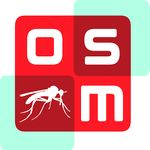OpenSourceMalaria:Obtaining Compounds for OSM
How to Obtain Compounds for OSM
Many of the original compounds acting as hits/leads for OSM arose from libraries purchased from smaller specialised companies. How best to obtain analogs of hits in the OSM project?
Novel compounds clearly need to be synthesised, which is costly and time-consuming. Other compounds may be available by other means:
1) Identification of Relevant Commercial Compounds: What if some relevant compounds are already commercially available? How can these be found? Iain Wallace was able to do a search of databases such as eMolecules for relevant compounds above a certain threshold of similarity and filter compounds by supplier, generating a "hitlist" quickly and with no manual human input. These can be converted into spreadhseets for quick visualisation - see here for examples in the aminothienopyrimidine series.
2) Obtaining Commercial Compounds: With the compounds identified, the relevant suppliers need to be contacted to ask for donations. That will probably not be trivial since it needs a human interaction. Failing that the compounds can just be bought.
3) Identification of Other/Academic Compounds: What about desirable, known compounds that are not commercially available, e.g. compounds sitting in academic lab fridges? Some of these may be identified using resources like SciFinder, though these require expensive subscriptions. Many useful compounds may not even be in the published literature (an argument for openness in science). There are some reports of activity of compounds in Series 1 (e.g., here), though it is not clear whether the activity is relevant to malaria.
4) Get Other/Academic Compounds: This will be a case of manual contact with interested groups. Here is an example enquiry. Naturally contributions are rewarded by possible authorship on resulting papers. Ultimately we (the scientific community) are not efficient at sharing chemical resources. A user-driven list would be helpful that permits the following open appeal: "I need compound X. I can buy it from you, or you can give it to me, or you can make it for me or with me, but I need the compound in timeframe Y." This is like a Molecular Craigslist, and would reduce some of the supply-demand barriers in chemical research.
